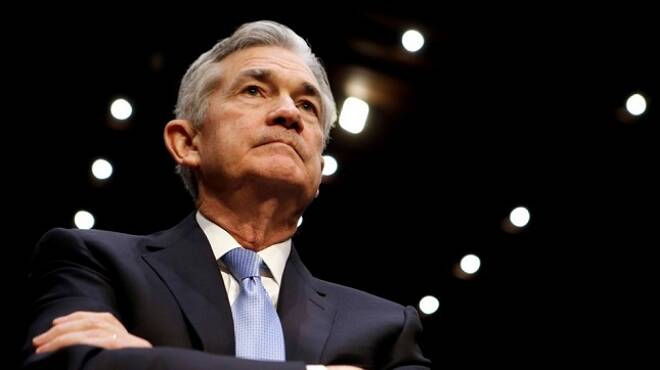Advertisement
Advertisement
Fed Minutes: Policymakers Finally Acknowledge Trade War Risks to ‘Strong’ Economy
By:
The minutes showed that “all participants pointed to ongoing trade disagreements and proposed trade measures as an important source of uncertainty and risks. Participants observed that if a large-scale and prolonged dispute over trade policies developed, there would likely be adverse effects on business sentiment, investment spending, and employment.”
The financial markets showed a muted response to the minutes from the July 31-August 1 Federal Open Market Committee meeting after policymakers reiterated its call for “strong” economic growth, but added that it saw ongoing global trade tensions as the biggest threat to otherwise strong U.S. economic growth.
Fed officials also said it would “likely soon be appropriate to take another step in removing policy accommodation,” an indicator for a looming rate hike that is widely expected by markets. They further indicated that tariffs, imposed on a range of goods by President Trump, pose dangers across a variety of areas.
The minutes showed that “all participants pointed to ongoing trade disagreements and proposed trade measures as an important source of uncertainty and risks. Participants observed that if a large-scale and prolonged dispute over trade policies developed, there would likely be adverse effects on business sentiment, investment spending, and employment.”
Inflation was also discussed with policymakers divided over the current trend and how to respond policy-wise.
The Fed didn’t raise rates at its last meeting, holding them between 1.75 percent and 2 percent, however, nothing in the minutes indicated they wouldn’t continue down the path of gradual quarterly rate hikes. At this time, the financial futures markets indicate investors widely anticipate a rate hike in September and possibly one more in December.
Policymakers also noted that the term “accommodative” to describe policy likely will be removed “fairly soon” from post-meeting statements. However, this is not a given if current conditions change.
“Wide-ranging tariff increases would also reduce the purchasing power of U.S. households,” the minutes said. “Further negative effects in such a scenario could include reductions in productivity and disruptions of supply chains. Other downside risks cited included the possibility of a significant weakening in the housing sector, a sharp increase in oil prices, or a severe slowdown in [emerging market economies].”
Translation: Tariffs could disrupt current economic growth.
Fed officials also noted that “an escalation in international trade disputes was a potentially consequential downside risk for real activity. Some participants suggested that, in the event of a major escalation in trade disputes, the complex nature of trade issues, including the entire range of their effects on output and inflation, presented a challenge in determining the appropriate monetary policy response.”
What this means is that should the trade disputes worsen, future rate decisions could be impacted.
As far as inflation is concerned, members said the current trend is toward the Fed’s 2 percent goal. However, they did note that some pressures are emerging, including tariffs that are increasing input prices.
“Reports from several Districts suggested that firms had greater scope than in the recent past to raise prices in response to strong demand or increases in input costs, including those associated with tariff increases and recent rises in fuel and freight expenses,” the minutes said.
Finally, Fed officials indicated that valuations of stocks and other assets are “elevated” while corporate borrowing conditions are “easy.”
About the Author
James Hyerczykauthor
James Hyerczyk is a U.S. based seasoned technical analyst and educator with over 40 years of experience in market analysis and trading, specializing in chart patterns and price movement. He is the author of two books on technical analysis and has a background in both futures and stock markets.
Advertisement
